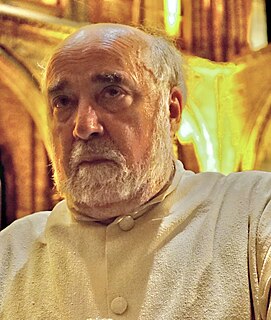Biography
First of all, Cantor turned his attention towards the interpretation of ancient music by the ensembles Ensemble Clément Janequin, Huelgas Ensemble, and Ensemble Organum.
His soloist career began with the ensemble Les Arts Florissants of William Christie, of which he was one of the pillars during the 1980s, along with Agnès Mellon, Guillemette Laurens, Jill Feldman, Monique Zanetti, Dominique Visse, Étienne Lestringant, Michel Laplénie, Gregory Reinhart, François Fauché, and Antoine Sicot.
He also sang the baroque repertoire under the direction of Jean-Claude Malgoire, Sigiswald Kuijken, René Jacobs, Christophe Coin, David Stern, Jean-Christophe Frisch and Gilbert Bezzina with whom he made several recordings.
In 1992, he won the Concours de Rennes for his interpretation of Golaud's role ( Pelléas et Mélisande - Debussy) and approached the roles of the 19th and 20th century repertoire, until the creation of contemporary works by Antoine Duhamel, Pierre Jansen, Jacques Veyrier, Jean-Claude Wolff (who composed several cycles of melodies for him); Maurice Ohana, Henri Dutilleux, Philippe Forget conducted by Jean-Marc Cochereau (Orchestre Région-centre), Robert Martignoni (Orchestre de Bretagne), Philippe Bender (Orchestre Régional Provence-Côte d'Azur), Jean-Louis Forestier (Ensemble Musique vivante), Jacques Mercier (Orchestre national d'Île-de-France), Christian Zacharias (Orchestre de Chambre de Lausanne), and Ensemble 2e2m.
Today, he divides his activities between Baroque music (with the Ensemble baroque de Nice [ fr ] conducted by Gilbert Bezzina; the ensemble Fuoce E Cenere - Jay Bernfeld; La Compagnie Fêtes Galantes - Béatrice Massin); oratorios; recitals (with pianists Sophie Rives, Mara Dobresco, Jean-François Ballevre, Didier Puntos, Laurent Wagschal; chamber music (with the vocal ensemble "Les Solistes de Lyon" led by Bernard Tetu, accompanied by Philippe Cassard, Noël Lee, Jean-Claude Pennetier) and the stage where he was particularly noticed in the roles of Pimpinone (Telemann), Don Alfonso (Mozart: Cosi fan Tutte ), Leporello (Mozart: Don Giovanni ), Mamma Agata (Donizetti), Golaud (Debussy): Pelléas and Mélisande ), The Celebrant (Bernstein: Mass), Macbeth (Philippe Forget: Macbeth) to the musical Sweeney Todd (Sondheim).
In 2013, he took part as a singer-actor in the performances of Henrik Ibsen's La dame de la mer by the Teatro Malandro, directed by Omar Porras.
His latest recordings are devoted to French melody with pianist Sophie Rives, published by "Anima Records": Claude Debussy (in 2010), Francis Poulenc (in 2012), [1] and Maurice Ravel. [2]
This page is based on this
Wikipedia article Text is available under the
CC BY-SA 4.0 license; additional terms may apply.
Images, videos and audio are available under their respective licenses.



